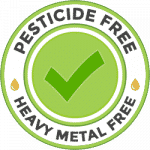The Importance of Sustainable Animal Bedding
Sustainable animal bedding is an essential component of environmentally responsible animal farming. Bedding material plays a crucial role in the health, well-being, and productivity of livestock. Traditional animal bedding materials, such as straw, sawdust, and wood shavings, are often associated with deforestation, habitat loss, and soil degradation. This has led to a growing need for more sustainable and eco-friendly animal bedding alternatives that can meet the needs of both the animals and the environment.
=== Hemp: A Versatile and Eco-Friendly Solution
Hemp is a highly versatile and eco-friendly solution for animal bedding. It is a fast-growing plant that requires very little water, fertilizers, or pesticides to grow. Hemp bedding can be used for a variety of animals, including horses, cows, chickens, and small animals like rabbits and guinea pigs. It is also easy to clean and maintain, as hemp bedding absorbs moisture and odor effectively.
=== Benefits of Hemp Bedding for Animals and the Environment
Hemp bedding offers several benefits for both animals and the environment. One of the primary advantages is its absorbency. Hemp can absorb four times its weight in moisture, keeping animals dry and comfortable. This helps prevent bacterial growth, which can lead to infections and other health problems. Additionally, hemp bedding is biodegradable and compostable, making it an excellent choice for sustainable animal farming. It also reduces the need for traditional bedding materials, reducing the negative environmental impacts associated with their production and disposal.
=== Hemp Bedding vs Traditional Bedding Materials
Compared to traditional bedding materials, hemp bedding has several advantages. For example, straw and sawdust require a significant amount of water, energy, and resources to produce, while hemp can be grown without the use of harmful chemicals and fertilizers. Additionally, traditional bedding materials like wood shavings and straw can be difficult to clean and maintain, often leading to the buildup of harmful bacteria. Hemp bedding, on the other hand, is naturally antibacterial, making it a safer and healthier option for animals.
=== Hemp Bedding Production: A Sustainable Process
The production of hemp bedding is a sustainable process that has minimal negative impacts on the environment. Hemp grows quickly, requiring less water and fewer resources than traditional bedding materials. Additionally, hemp is naturally resistant to pests and diseases, reducing the need for harmful pesticides and insecticides. Hemp is also a renewable resource, meaning that it can be harvested and replanted year after year, making it an excellent choice for sustainable animal farming.
Embracing Hemp in Animal Farming for a Greener Future
In conclusion, sustainable animal bedding is an essential component of environmentally responsible animal farming. Hemp bedding offers a versatile, eco-friendly, and sustainable solution that benefits both animals and the environment. By embracing hemp in animal farming, we can reduce our reliance on traditional bedding materials and reduce our environmental impact. Let’s work towards a greener future by adopting sustainable animal farming practices that prioritize the health and well-being of both animals and the planet.
